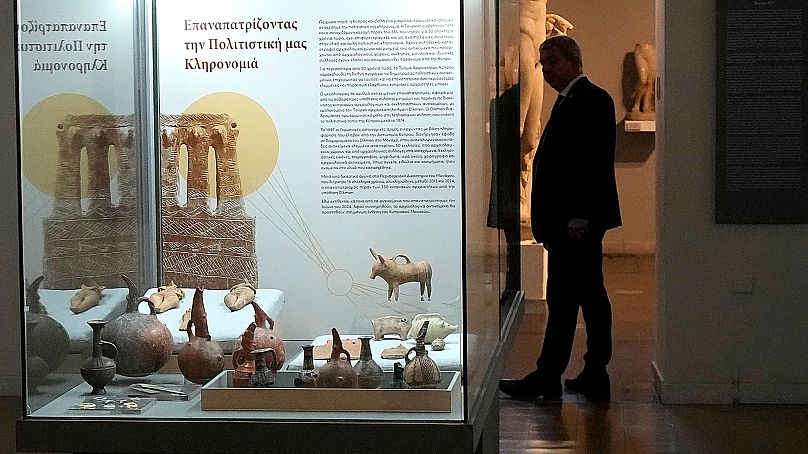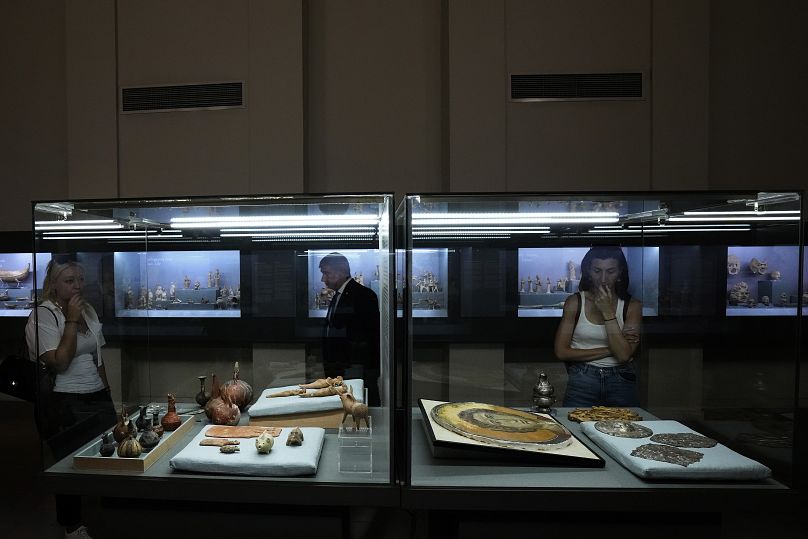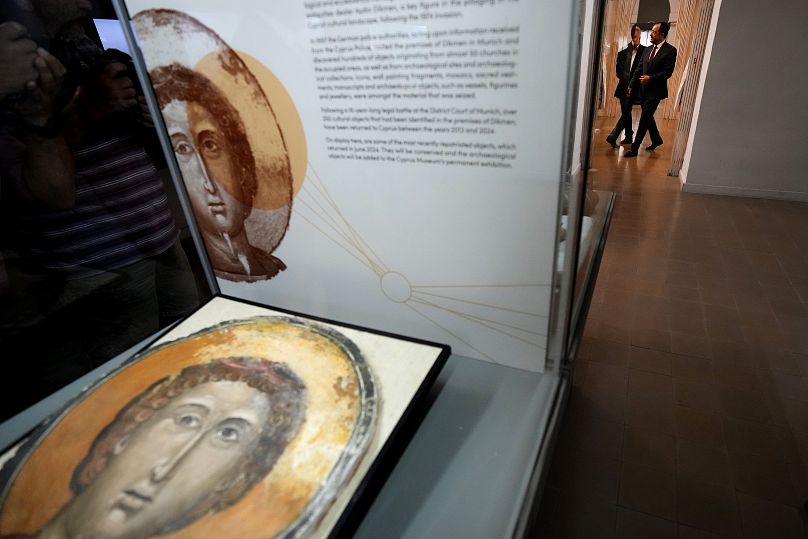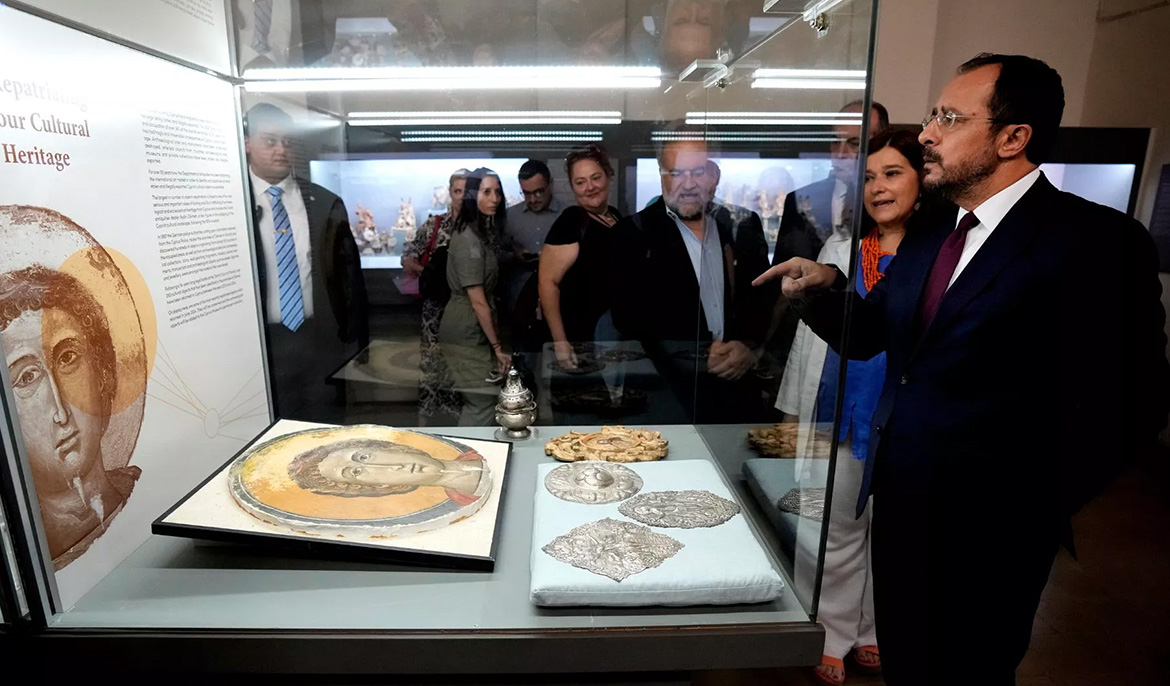The artefacts’ repatriation marks the end of decades-long legal battles and efforts to recover the nation’s cultural heritage.
Cyprus have unveiled a remarkable collection of ancient artefacts, some dating back thousands of years, that were returned after being looted decades ago by a notorious Turkish art dealer.
Aydin Dikmen took the treasures from the country’s breakaway north in the years after Cyprus’ split in 1974, when Turkey invaded following a coup mounted by supporters seeking union with Greece.
The antiquities were kept in Germany after authorities there seized them in 1997, and protracted legal battles secured their repatriation in three batches, the last one this year.
A ceremony at the Cyprus Museum (the oldest and largest archaeological museum in Cyprus), celebrating the return of artefacts, was attended by high-ranking officials, including the President of the Republic, the Archbishop of Cyprus, and the Minister of Justice and Public Order.
- Looted antiquities: US vows more returns as Italy celebrates latest haul of 600 artifacts
- Oxford University to return 500-year-old sculpture of Hindu saint to India

Among the 60 newly displayed items are exquisite pieces of jewellery from the Chalcolithic Period (3500-1500 B.C.) and charming Bronze Age bird-shaped idols, each telling a story of Cyprus’ rich and diverse history.
Antiquities that Dikmen also looted but were returned years ago include 1,500-year-old mosaics of Saints Luke, Mark, Matthew and James. They are among the few examples of early Christian works to survive the Iconoclastic period in the 8th and 9th centuries when most such works were destroyed.


Cyprus’ authorities and the country’s Orthodox Church for decades have been hunting for the island’s looted antiquities and centuries-old relics from as many as 500 churches in open auctions and on the black market.
The museum’s antiquities curator, Eftychia Zachariou, told the ceremony that Cyprus in recent years has benefited from a shift in thinking among authorities in many countries who now opt to repatriate antiquities of dubious provenance.


